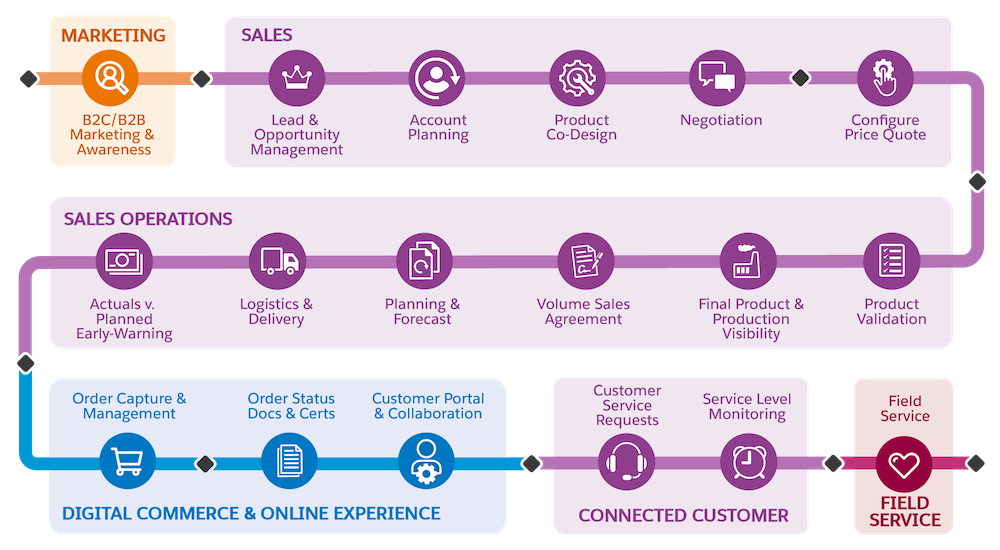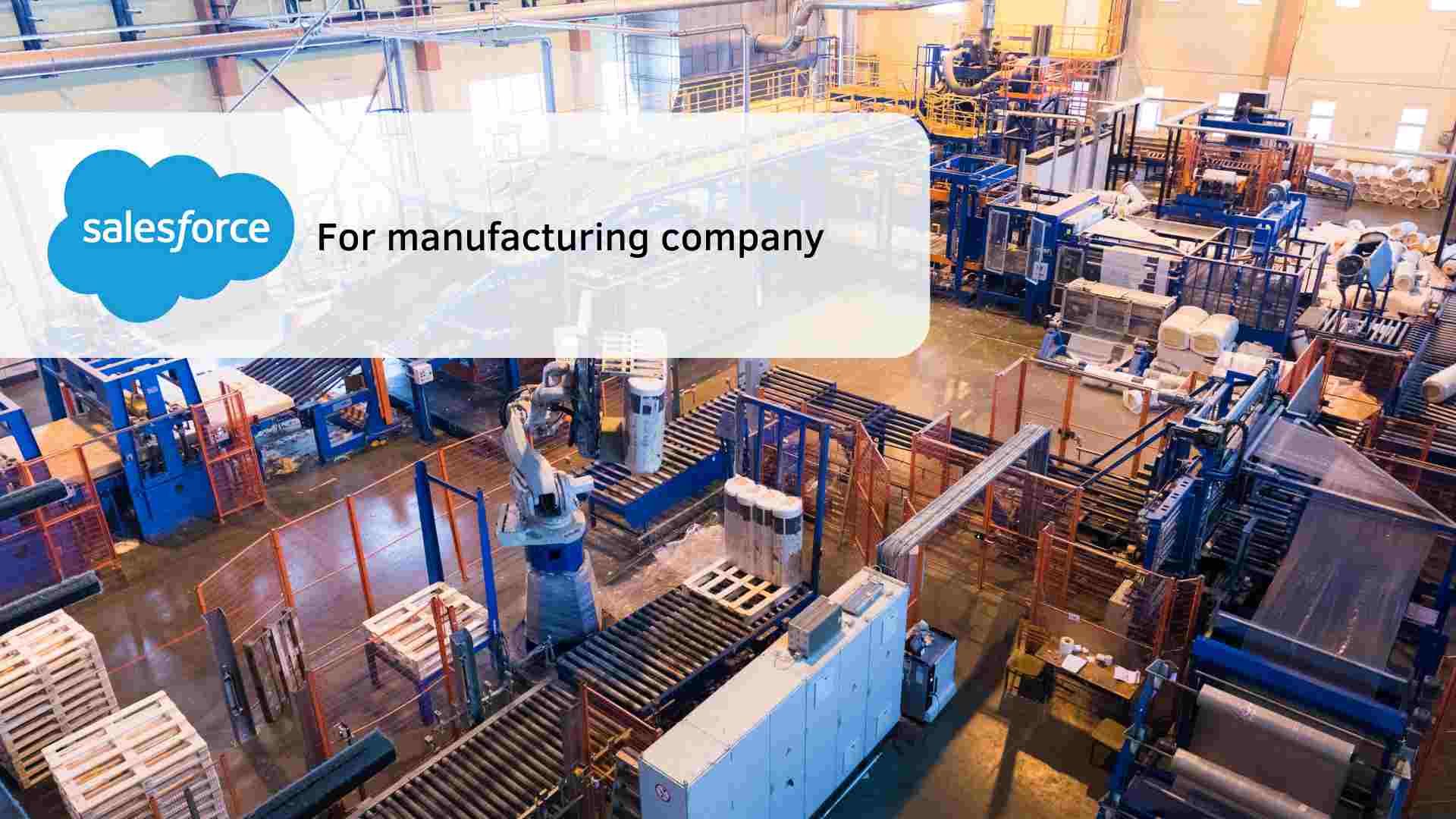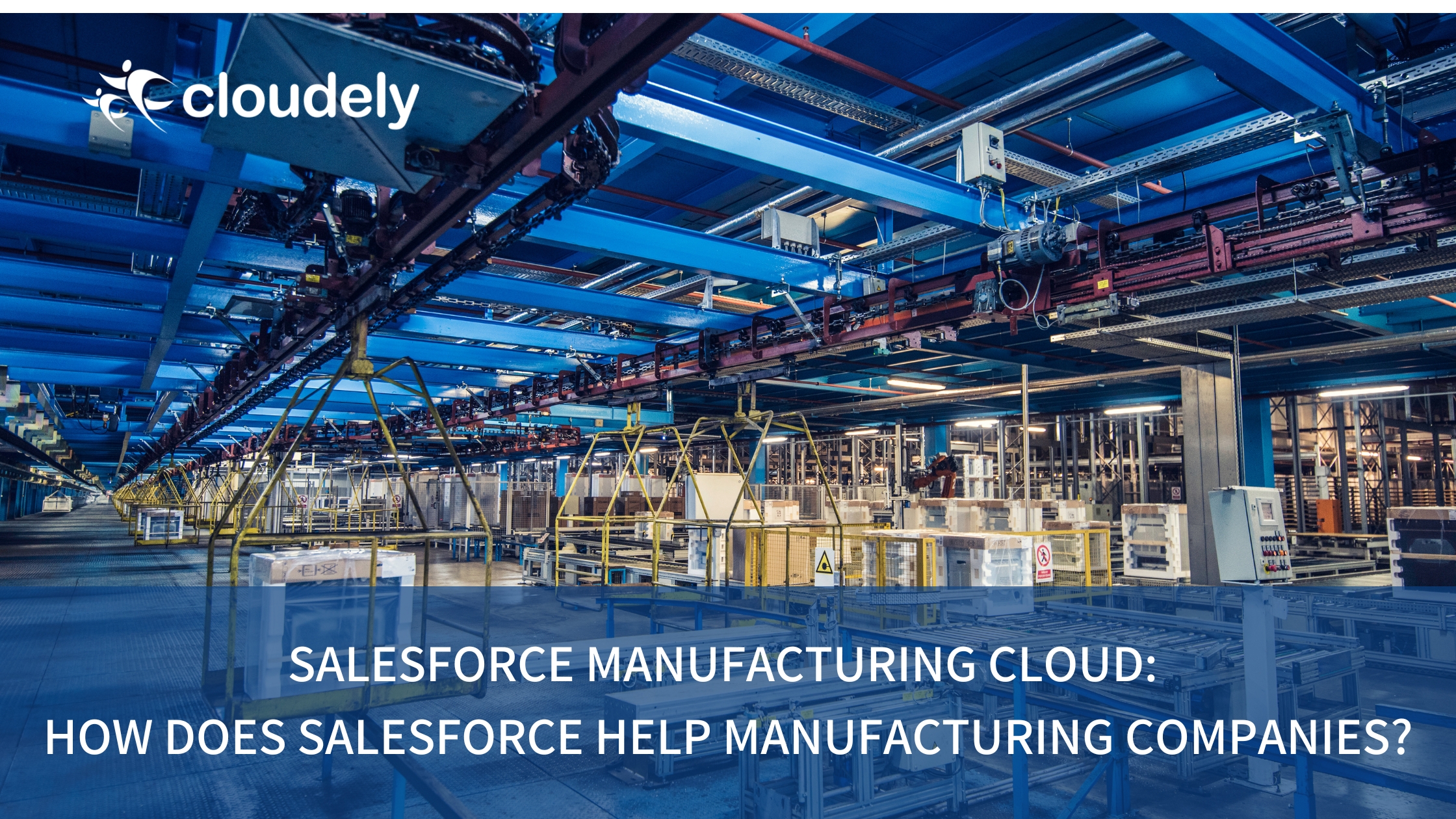Salesforce is a powerful tool that can transform how manufacturing companies operate. It streamlines processes, enhances customer relationships, and drives growth. Discover how Salesforce can revolutionize your manufacturing business.
In the competitive landscape of manufacturing, companies are constantly seeking ways to improve efficiency, enhance customer satisfaction, and drive growth. Salesforce, a leading customer relationship management (CRM) platform, offers a suite of tools specifically designed to meet the unique needs of manufacturing companies. By leveraging Salesforce, manufacturers can streamline operations, improve collaboration, and gain valuable insights into their business processes.
This blog post will explore how Salesforce can benefit manufacturing companies, the features that make it an ideal choice, and actionable steps to implement it effectively. Whether you are a small manufacturer or a large enterprise, understanding how to harness the power of Salesforce can lead to significant improvements in your operations and customer relationships.
Key Takeaways
- Salesforce provides tailored solutions for manufacturing companies.
- Key features include inventory management, sales forecasting, and customer engagement tools.
- Implementing Salesforce can lead to increased efficiency and improved customer satisfaction.
- Real-world case studies demonstrate the effectiveness of Salesforce in manufacturing.
- Actionable steps are provided for successful implementation.

What is Salesforce?
Salesforce is a cloud-based CRM platform that helps businesses manage their customer relationships, sales processes, and marketing efforts. It offers a range of tools and features that can be customized to fit the specific needs of various industries, including manufacturing. With Salesforce, companies can track customer interactions, manage sales pipelines, and analyze data to make informed decisions.
Why Choose Salesforce for Manufacturing?
Manufacturing companies face unique challenges, such as managing complex supply chains, maintaining inventory levels, and ensuring customer satisfaction. Salesforce addresses these challenges by providing tools that enhance visibility, streamline processes, and improve communication across departments. Here are some reasons why manufacturing companies should consider Salesforce:
- Enhanced Collaboration: Salesforce fosters collaboration among teams by providing a centralized platform for communication and information sharing. This ensures that everyone is on the same page, reducing errors and improving efficiency.
- Data-Driven Insights: With Salesforce’s robust analytics capabilities, manufacturers can gain valuable insights into their operations. This data can be used to identify trends, forecast demand, and make informed decisions that drive growth.
- Improved Customer Engagement: Salesforce helps manufacturers build stronger relationships with their customers by providing tools for personalized communication and support. This leads to higher customer satisfaction and loyalty.
- Streamlined Operations: By automating routine tasks and processes, Salesforce allows manufacturers to focus on what matters most—producing high-quality products and meeting customer needs.
- Scalability: As manufacturing companies grow, their needs change. Salesforce is highly scalable, allowing businesses to add features and functionalities as needed without significant disruptions.

Key Features of Salesforce for Manufacturing Companies
Salesforce offers a variety of features that are particularly beneficial for manufacturing companies. Here are some of the key functionalities that can help streamline operations and enhance customer relationships:
1. Inventory Management
Effective inventory management is crucial for manufacturing companies. Salesforce provides tools to track inventory levels, manage stock, and forecast demand. This ensures that manufacturers have the right products available at the right time, reducing the risk of stockouts or overstock situations.
2. Sales Forecasting
Sales forecasting is essential for planning production and managing resources. Salesforce’s analytics capabilities allow manufacturers to analyze historical sales data and predict future trends. This helps companies make informed decisions about production schedules and resource allocation.
3. Customer Relationship Management
Salesforce’s core functionality revolves around managing customer relationships. Manufacturers can track customer interactions, manage leads, and provide personalized support. This leads to improved customer satisfaction and loyalty.
4. Supply Chain Management
Managing a supply chain can be complex, but Salesforce simplifies this process. Manufacturers can track suppliers, manage orders, and monitor delivery schedules, ensuring that production runs smoothly and efficiently.
5. Reporting and Analytics
Salesforce provides robust reporting and analytics tools that allow manufacturers to gain insights into their operations. Companies can create custom reports to track key performance indicators (KPIs) and make data-driven decisions.

Implementing Salesforce in Manufacturing: Actionable Steps
Implementing Salesforce in a manufacturing company requires careful planning and execution. Here are some actionable steps to ensure a successful implementation:
Step 1: Define Your Goals
Before implementing Salesforce, it’s essential to define your goals. What do you want to achieve with the platform? Whether it’s improving customer engagement, streamlining operations, or enhancing data analysis, having clear objectives will guide your implementation process.
Step 2: Assess Your Current Processes
Take the time to assess your current processes and identify areas for improvement. This will help you determine how Salesforce can best meet your needs and where to focus your efforts during implementation.
Step 3: Customize Salesforce to Fit Your Needs
Salesforce is highly customizable, allowing you to tailor the platform to your specific requirements. Work with your team to configure the system, set up workflows, and create custom fields that align with your business processes.
Step 4: Train Your Team
Proper training is crucial for successful adoption. Ensure that your team is well-versed in using Salesforce and understands how it can benefit their roles. Consider providing ongoing training and support to help them maximize the platform’s capabilities.
Step 5: Monitor and Optimize
After implementation, continuously monitor your Salesforce usage and gather feedback from your team. Use this information to optimize your processes and make adjustments as needed to ensure that you are getting the most out of the platform.

Real-World Case Studies
To illustrate the effectiveness of Salesforce in manufacturing, let’s explore a few real-world case studies:
Case Study 1: ABC Manufacturing
ABC Manufacturing, a mid-sized manufacturer of automotive parts, struggled with inventory management and customer engagement. After implementing Salesforce, they were able to streamline their inventory processes, reducing stockouts by 30%. Additionally, the CRM tools allowed them to improve customer communication, leading to a 25% increase in customer satisfaction scores.
Case Study 2: XYZ Electronics
XYZ Electronics, a large manufacturer of consumer electronics, faced challenges in sales forecasting and supply chain management. By leveraging Salesforce’s analytics capabilities, they improved their sales forecasting accuracy by 40%. This enabled them to optimize their production schedules and reduce lead times, resulting in a 15% increase in overall efficiency.
Case Study 3: DEF Chemicals
DEF Chemicals, a chemical manufacturing company, needed a better way to manage customer relationships and track sales leads. After implementing Salesforce, they saw a 50% increase in lead conversion rates. The platform’s reporting tools also provided valuable insights into customer behavior, allowing them to tailor their marketing efforts effectively.

Frequently Asked Questions about Salesforce for Manufacturing Companies
1. What is Salesforce?
Salesforce is a cloud-based customer relationship management (CRM) platform that helps businesses manage customer interactions, sales processes, and marketing efforts.
2. How can Salesforce benefit manufacturing companies?
Salesforce can enhance collaboration, provide data-driven insights, improve customer engagement, streamline operations, and scale with business growth.
3. What key features does Salesforce offer for manufacturing?
Key features include inventory management, sales forecasting, customer relationship management, supply chain management, and reporting and analytics.
4. How do I implement Salesforce in my manufacturing company?
To implement Salesforce, define your goals, assess current processes, customize the platform, train your team, and monitor usage for optimization.
5. Can Salesforce help with supply chain management?
Yes, Salesforce provides tools to track suppliers, manage orders, and monitor delivery schedules, simplifying supply chain management for manufacturers.
Conclusion
Salesforce offers manufacturing companies a powerful solution to enhance their operations and improve customer relationships. By leveraging its features, manufacturers can streamline processes, gain valuable insights, and drive growth. Implementing Salesforce may seem daunting, but with clear goals and a well-defined strategy, it can lead to significant improvements in efficiency and customer satisfaction.
Take the first step towards transforming your manufacturing business by exploring Salesforce further. Consider reaching out to a Salesforce consultant or exploring additional resources to learn more about how this platform can benefit your company. Don’t hesitate to leave a comment or share your experiences with Salesforce in the manufacturing sector!






